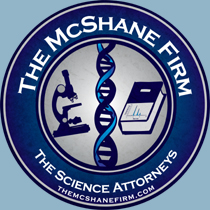One of my favorite movies is The Matrix. There is one scene that really jumps out to me. When Morpheous and Neo first meet. Morpheus shows Neo two pills: a blue and a red one. If Neo chooses the blue pill, he will wake up in his bed and forget about everything that happened to […]

The danger of “I know it when I see it” identification
I have written here before about the danger of the “I know it when I see it” approach and even in combination with screening tests such as the NIK Public Safety tests. Roadside screening tests such as the NIK Public Safety Reagent Based Tests Can Provide False Positives. Here is another unfortunate example of bad […]

Forensic Science Blogs that I watch
If you don’t have Google Reader with subscriptions set up, then I think you are either drowning in information or don’t have an effective and efficient way of managing your time to make sure that you don’t miss out on information. I personally monitor over 200 blogs each and every day in real time using […]

Another crime laboratory in danger: US Army
Some folks seem to think that laboratory errors are confined to local laboratories and rouge out-of-control isolated agents who are either sloppy or up to no good. Intuitively, we know this is not true. Laboratories are run by humans. Humans make mistakes. Some humans deliberately lie to get what they want and to keep themselves […]

Roadside screening tests such as the NIK Public Safety Reagent Based Tests Can Provide False Positives
Screening tests can lead to false arrests. The characteristics of a screening test are that they are easy to use with little to no training. They are used at a point of first contact meaning typically at roadside. In science, it seems as if there is the continual struggle between fast, cheap and good. It […]

Is it legitimate for a crime laboratory to use ‘historical data’ to prove its test results are valid?
I am lucky to get questions from colleagues. I am honored by it, and I thank them for the opportunity to answer their questions. From time to time I am going to feature questions that I get from them if they provide for teachable concepts. This question from a colleague provides for just such an […]

The discretion exercised every day and with every test in forensic science
Unless you are a scientist, you probably do not realize that analysts in forensic science exercise a massive amount of discretion with the reporting of data. In a thought provoking article that appeared on www.SeparationsNow.com and in their “Lab Infomatics” section reads: It’s the analytical scientist’s perennial dilemma: where to strike the balance between convenience […]

How do we get today’s youth interested in Science and Math?
I have lamented on this blog about the sad state of affairs that underlies the science in forensic science. In my personal opinion, I think the root of the problem really is four-fold: Criminal Defense attorneys not learning science: I squarely point the finger (and even wag it) at most at my colleagues and predecessors. […]

How far have we come in forensic science?
There’s an old saying: “Things aren’t as bad as they used to be.” But is this true in forensic science? Eric Lander is a Professor of Biology at the Massachusetts Institute of Technology (MIT), a member of the Whitehead Institute, and director of the Broad Institute of MIT and Harvard. He currently is co-chair of […]

Forensic Science Reform or Business as Usual?
The Chairman of the United States Senate Committee on the Judiciary, Senator Patrick Leahy (D-Vermont), and his staff announced the release of his proposed bill the “Criminal Justice and Forensic Science Reform Act (CJFSRA).” You can read his press release here about the Criminal Justice and Forensic Science Reform Act (CJFSRA). [The following is a […]

The need to remain a forensic science skeptic: Apparent knowledge doesn’t equate actual knowledge
A lot of this blog is about exposing the limitations of assays and those performing the assays in forensic science. The truth is that very few forensic science disciplines involve assays and methods that have been truly validated. A lot of the folks performing the methods and testing are untrained, non-credentialed, nontechnical glorified traffic cops. […]


